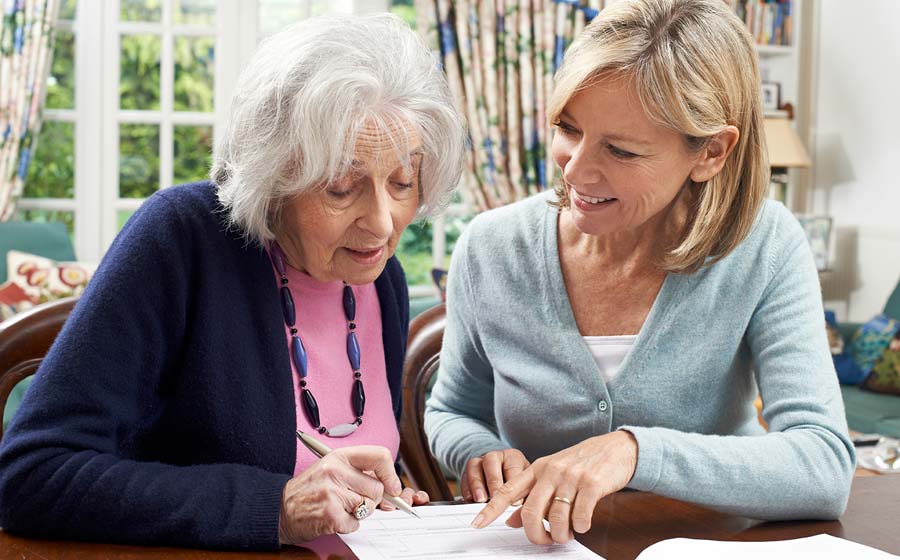Definition: (Description / Characteristics):
All family members, friends and neighbors who are involved in the care and support of a person with health-related restrictions are referred to as caring relatives. "Officially" the role of the caring relative begins with the application and determination of a degree of care.
A current study on the situation of care at home [1] comes to the following conclusions: 72 percent of caregivers are women. In most families, father and mother are cared for, about 20 percent care for their spouse, and in about 12 percent of cases, parents care for their (adult) children. 30 percent have been caring for more than six years.
Market potential: (current & future):
Around 80% of the approximately 4.8 million people in need of care in Germany are cared for at home. More than half of them (51.3%) are cared for by their relatives alone, 23.8 percent receive support from outpatient care and support services [2].
Calculations currently assume that there are around 7.6 million caring relatives. According to the Barmer care report [3], the number of people in need of care in Germany will increase to around six million by 2030. Accordingly, the number of caring relatives will continue to rise significantly.
Needs: (entry phase & in phase):
Finanzielle Situation:
Financial situation: Despite the comparably good coverage provided by long-term care insurance, caring for a relative often entails additional costs. In addition, many caring relatives accept a drop in salary if they have to reduce their work or give up work completely. This leads to a reduced pension entitlement and thus to a higher risk of poverty in old age.
Many caregivers are not aware of the scope of financial support provided by care insurance, various federal and state programs and topic-specific funding such as digital care applications (DiPa). Even if the possibilities of (financial) support are known, they are often not accepted, be it out of anger or because of the complicated application for funding [1].
Free time, life planning: Caring for someone close to you, e.g.assistance with shopping or accompanying you to the doctor, often becomes a proper care situation over time. Care in the home environment can quickly become a full-time job that leaves little time and space for leisure time and personal planning. Added to this are the emotional and physical challenges of caregiving.
Partnership: Depending on who is being cared for, this can affect the carer's partnership. If a person is cared for outside of the couple relationship, it is above all the time required and the many tasks that can put a strain on one's own partnership. But emotional stress, tension and states of exhaustion can also have an impact on the partner relationship.
The situation is even more difficult if your partner is in need of care. Then, inevitably, a lot changes in the partnership. Here you should talk about possible limits at an early stage and respect them if someone e.g. does not want to be cared for by the partner out of shame, or someone does not want to take over this care. (The same also applies within the family between children and parents).
Scenarios:
Barley anyone is prepared for the role of a familiy caregiver. Dealing with the topic usually only begins when the need for care arises. This quickly leads to excessive demands and tension, especially with the person being cared for. Good preparation is B. the drafting of care and pension powers of attorney. This "formality" gives the impetus to deal with the topic in the family and circle of friends and can lead to better planning of prevention and care. These include i.a. to take appropriate measures in the area of security or living space design at an early stage.
Especially in the case of acute events such as an accident or a stroke, the need for care usually occurs without such preparation. Relatives depend on quick support to cope with the new situation. This applies to the supply, the equipment of the care, but also for the organization of the everyday care. There are a variety of offers for this, some of which are reimbursed by the insurance companies. However, there is hardly any comprehensive advice, especially with regard to digital support. Networking among carers is also in need of improvement.
Sources:
[1] VDK-Studie zur Situation der Pflege zu Hause
[2] Statistisches Bundesamt, Demografie und Pflege
https://www.wir-pflegen.net/pflegende-angehoerige/wer-pflegt-in-deutschland
